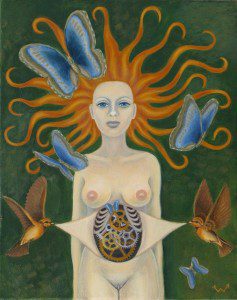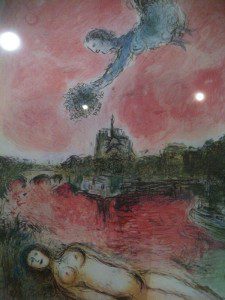
Dreaming is all about soul. This is why dreaming is true medicine for our lives and our worlds. The soul speaks to us in dreams, reminding of our purpose, our potential and our present condition. When we listen, we begin to remember who we are, where we come from, and what our soul’s mission is, in this world and in other worlds. Without this knowledge, our lives lack meaning, which is as essential to humans as food and sex and air.
As long as we are soul amnesiacs, stumbling or hustling through this world without grasping its deeper logic, we can miss the point of everything and end up looking back, from beyond death’s exit ramp, with bitter regret for all we failed to do and to risk. Ignorant of the soul’s purpose, we can do terrible harm to ourselves and others.
I learned in my teens, from a radiant guide who appeared as a beautiful young man from the eastern edge of the Hellenistic world, that all true knowledge is anamnesis, in the sense of “remembering” the knowledge that belongs to us on the level of soul or nous (mind) but is mostly forgotten after we endure the ordeal of leaving behind our former identity and coming down the birth canal. While there are many spiritual and meditative practices that may assist soul remembering, dreaming is essential..
In dreams, we travel naturally beyond body and brain, every night. Thus dreams have been the principal source of the near-universal human belief in a soul or spirit that can operate outside the body and survives physical death. As dream travelers, we find ourselves in the realms where people live after death. Geographies of the afterlife are based on journeys made in dreams or visions. We do not have to rely only on reports from previous travelers, as formalized in scripture and thrice-told tales; we can learn to travel these roads and make our own maps.
In this embodied life, dreams show us what the soul, as opposed to the ego, wants. They show us where vital soul energy may have gone, and give us clues to reclaiming vital parts of ourselves that may have left us through pain or trauma, or when we had to make wrenching life choices, or when we lost courage and gave up on our bigger dreams.

